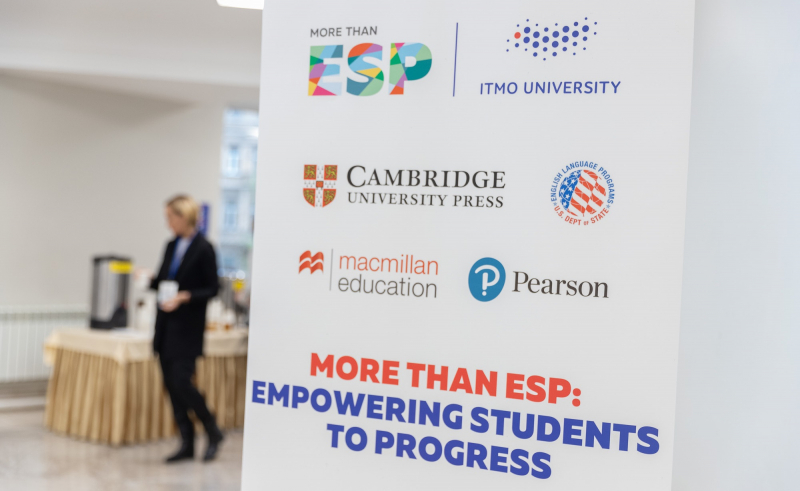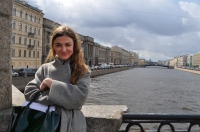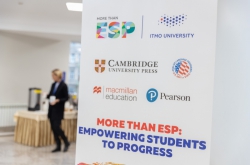In 2021, the conference was devoted to the transition from the classroom to the workplace and the influence of skills taught during students’ education on their career paths. Students, lecturers, course designers, program heads, employers, and team leaders were invited to share their perspectives on the topic. Participants discussed how the skills taught at the course help students be successful in their future careers, what kind of skills they need in terms of the English language, and what techniques, methodologies, and tools are effective for training these skills.
The two-day conference included two panel discussions, four plenary sessions, five networking sessions, and sixteen workshops. For the fourth time, it brought together English teaching specialists from around the world including Croatia, Cyprus, Iran, Norway, Poland, the UK, and the US to present their latest research in English for Specific Purposes, English as a Medium of Instruction, English for Academic Purposes, Digital Learning, and Teacher Development. We talked to a few of the participants of the conference about their experiences.
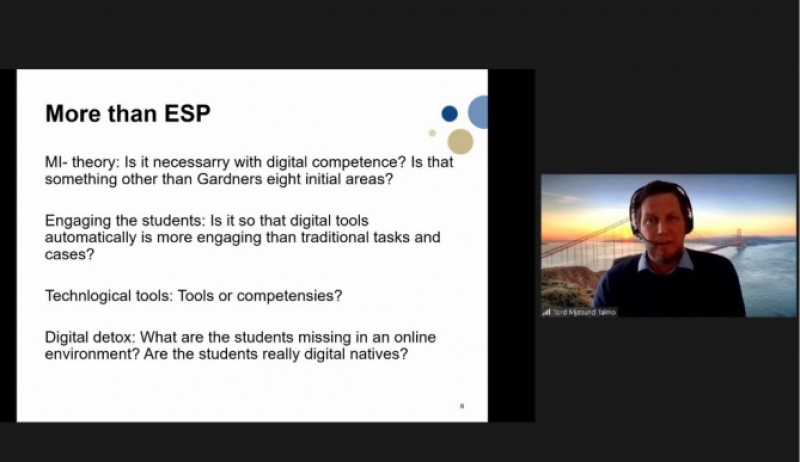
Ilona Miller, academic director at Foreign Language Training Center, ITMO University, Russia
I think that this year’s conference was special. Although it was our first experience with the online format, it allowed us to significantly expand the geography of our participants. This year, our goal was to bridge the gap between prospective employers and soon-to-be employees. How can we make sure that our graduates are demanded not only in Russia but also abroad? Will these skills come in handy in their future jobs? And what should we do to keep pace with employers? I think we know all the answers now.
Alexandra Kalyakina, guest speaker, inside sales specialist at Avnet, Russia
All will agree that the creation of English for Specific Purposes programs is a major and complex challenge, especially in today’s fast-changing world. I’m glad that universities and ITMO in particular keep up with the times and engage professors and lecturers, students, and staff of international companies in such discussions. The organizers managed to bring together representatives from various industries to the panel discussion. I believe that the truth does not come out of arguments but through such lively and stimulating discussions as we had with the other panelists.
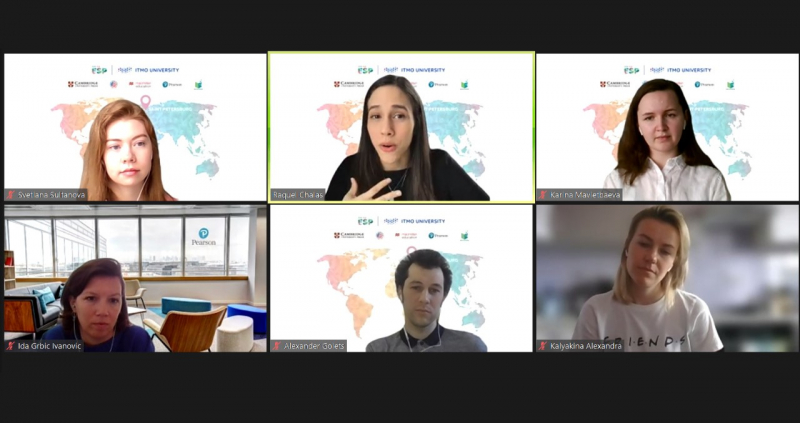
Karina Mavletbaeva, Master’s student at the Faculty of Biotechnologies, ITMO University, Russia
It was my first international panel discussion. I was a little nervous and completely forgot the word “mindfulness”. I wanted to talk about the importance of international experience in my professional field. I am a food technologist engaged in the production of kombucha. To achieve this goal, I think that it’s more important to develop business communication skills (after all, diplomacy in Russian is a bit different), self-presentation in English, create a successful portfolio, and be able to critically analyze international sources than other skills like translating the technological process of dairy production into English. I wish I could’ve had a further discussion with my fellow panelists but I’m very grateful for the invitation and the useful experience of international interaction.
Since the establishment of ITMO’s first More than ESP conference in 2016, the conference has now become a well-known space for discourse among the English language teaching community. The next conference will be held in 2023.
Written by Svetlana Sultanova, ITMO's Foreign Language Training Center
